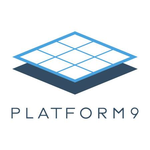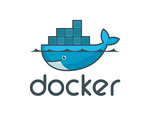What Is Container Orchestration Software?
Businesses utilize container orchestration software, a potent tool for automating and managing the deployment, scaling, and administration of containerized applications. Building, shipping, and executing programs in various contexts is made simpler with containers, which are a lightweight method of packaging software and its dependencies. However, it can become burdensome and complex to manage a large number of containers across several systems.
Software for container orchestration can help with it. Businesses may effectively manage and coordinate several containers in a distributed environment with the help of this software. By automating processes like fault tolerance, load balancing, deployment, scalability, and service discovery, it helps companies run their apps more efficiently.
Businesses can quickly deploy and manage their apps in a variety of contexts, including on-premises and the cloud, with container orchestration software. The ease of scaling programs is one of the key benefits of utilizing container orchestration technologies. Businesses may dynamically modify the number of containers based on demand with the use of technologies like auto-scaling, guaranteeing that their applications can manage high traffic levels without experiencing any interruptions.
These tools also have self-healing features, which guarantee greater availability and dependability by automatically identifying and replacing any damaged or unhealthy containers. Additionally, container orchestration software makes it easier to manage many environments, including production, testing, and development. It lowers the possibility of mistakes and inconsistencies by offering a dependable and uniform method for managing and deploying applications across all environments.This enhances the development process's overall agility by enabling quicker and more frequent deployments.
What Are The Recent Trends In Container Orchestration Software?
Software for container orchestration has emerged as a crucial resource for companies trying to optimize the deployment of their applications. The need for container orchestration solutions has increased significantly in recent years due to the development of containerization technologies. Because of this, the market for container orchestration software has grown extremely competitive, and new trends are always appearing to satisfy consumers' changing needs.
1. Pay Attention To Multi-Cloud Settings: The emphasis on multi-cloud environments is one of the most popular themes in container orchestration software. Container orchestration solutions have developed to facilitate the deployment and management of applications across various cloud platforms as more companies embrace a multi-cloud approach. This enables businesses to optimize performance and cut expenses by selecting the best cloud infrastructure for each of their apps.
2. Hybrid Infrastructure Integration: The incorporation of hybrid infrastructure support is another development in the container orchestration market. Since many businesses have both cloud-based and on-premise infrastructure, container orchestration software has developed to handle apps in both settings with ease. This enables companies to profit from cloud computing without sacrificing control over their critical data on-site.
3. Microservices Architecture Adoption: Container orchestration software is keeping up with the growing popularity of microservices architecture. Applications become more scalable and resilient when they are divided into smaller, easier-to-manage components using microservices. Microservices-based application management and deployment are now better supported by container orchestration technologies, which give more flexibility and granular control.
4. A Rise In Serverless Technology Usage: Container orchestration software has been significantly impacted by the emergence of serverless technologies. Serverless computing is a great choice for microservices-based applications because it lets developers deliver code without worrying about the underlying infrastructure. In order to give users a more smooth and simple deployment experience, container orchestration systems have begun to integrate with serverless platforms.
5. Integrated Security Features: Businesses place a high premium on security in the current cyberthreat environment. This trend has been recognized by container orchestration software, which now provides built-in security safeguards to safeguard data and apps. These features, which guarantee that apps launched via the orchestration platform are safe and compliant, can include network policies, encryption, and container-level security.
Benefits Of Using Container Orchestration Software
An effective and efficient method for managing and deploying containerized applications is container orchestration software. Adopting innovative technology that help optimize operations and boost overall performance has become crucial for businesses in today's fast-paced and fiercely competitive corporate environment. Container orchestration software is essential for any modern business because of the following main advantages:
1. Automates Deployment: The deployment and management of containers are automated by container orchestration software. This makes the deployment process constant, dependable, and error-free and does away with the need for manual intervention. Organizations can focus on other important tasks by using automation to save time and resources.
2. Makes Container Administration Easier: Taking care of a lot of containers might be difficult. A unified platform for managing and keeping an eye on containers is offered by container orchestration software, which facilitates tracking and troubleshooting potential problems. This makes container administration easier, even in intricate multi-cloud setups.
3. Boosts Scalability: Scaling up or down is simple using container orchestration software. It enables companies to dynamically add or remove containers based on traffic and application burden. Even during periods of high demand, this scalability guarantees that the program will continue to be responsive and available.
4. Improves Resource Utilization: By pooling resources and distributing them to containers according to their needs, container orchestration software maximizes resource allocation. This lowers waste and increases resource usage, which saves the company money.
5. Increases Application Availability: By automatically restarting malfunctioning containers or shifting workload to healthy containers, container orchestration software guarantees high application availability. This lowers downtime and guarantees that vital applications are always available.
6. Facilitates Effortless Portability And Compatibility: Containerization makes it possible for apps to function uniformly in many contexts, which facilitates their transition from development to testing to production. Applications can be deployed smoothly and seamlessly thanks to this interoperability, irrespective of the underlying infrastructure.
7. Encourages Cooperation: Software for container orchestration encourages cooperation between the security, operations, and development teams. It gives these teams a single platform to collaborate on, which speeds up application delivery and improves communication.
8. Provides Cost-Effectiveness: Businesses can drastically lower their infrastructure expenses by using containers. They can further reduce costs by optimizing resource utilization with container orchestration software.
Important Factors To Consider While Purchasing Container Orchestration Software?
Before making a purchase, customers should carefully evaluate a number of important criteria when it comes to container orchestration software. These factors, which range from cost to functionality, can significantly affect how well and successfully containers are managed in a corporate environment.
The following are the most important considerations while looking for container orchestration software:
1. Scalability: The ease with which programs can be scaled up or down is one of containerization's primary advantages. Therefore, buyers should make sure that container orchestration software offers seamless scaling options when analyzing it. This includes adding or removing containers without affecting the system as a whole, as well as the capability to auto-scale in response to demand.
2. Compatibility: It's critical to confirm that the container orchestration software works with the organization's current programming languages, infrastructure, and containers. The software's compatibility with well-known cloud platforms like AWS, Azure, and Google Cloud Platform should also be taken into account by buyers.
3. Deployment Options: Whether the program can be installed on-site, in the cloud, or both should be taken into account by buyers. One deployment strategy can be better suited than the other, depending on the particular requirements of the company and its IT setup. Buyers should also investigate whether the deployment procedure can be handled by current employees or if a specialized team is needed.
4. Security: It's critical to make sure that the orchestration software offers strong security features because containers are very portable. This covers functions like encryption, access control, and container separation. To guarantee the security of sensitive data, buyers should also verify that industry rules and standards are being followed.
5. Monitoring And Management: To keep tabs on the operations, performance, and health of the containers, container orchestration software should have sophisticated monitoring and management features. This covers functions including logs, alerts, and real-time metrics. A user-friendly interface should also be included in the software for effective container management.
6. Cost: The price of any software acquisition is an important consideration. Whether the container orchestration software is pay-per-use or subscription-based, buyers should carefully consider its pricing structure. When making their choice, they should also take into account any extra expenses, such assistance and upkeep.
7. Help And Documentation: It's critical to have dependable software vendor help in case of any problems or inquiries. Customers should carefully review the vendor's response time and support choices. Furthermore, thorough documentation and resources for simple implementation and troubleshooting should be included with the product. Customers may make sure that the container orchestration software they select fits their unique requirements and aids in the efficient management of containers inside their company by carefully weighing these variables. Recall that the overall productivity and efficiency of the containerized environment can be significantly increased by making the appropriate software investment.
What Are The Key Features To Look For In Container Orchestration Software?
There are a few essential features to consider while selecting the best container orchestration software for your company. These characteristics will guarantee that the program you select can efficiently manage and coordinate your containers, increase productivity, and simplify your processes.
1. Container Management: Managing and orchestrating containers is the main purpose of container orchestration software, so it's critical to find a solution that can support several containers running on various platforms and settings. This covers the ease with which containers can be scaled, deployed, and monitored.
2. Platform Support: A variety of platforms, including Kubernetes, Docker, and Amazon ECS, should be supported by your container orchestration software. By doing this, you can prevent vendor lock-in and have the ability to operate with other environments.
3. High Availability And Scalability: To accommodate your company's evolving needs, the software should offer high availability and scalability, making it simple to add or remove containers. To guarantee seamless operations, it should also contain load balancing and automatic failover features.
4. Resource Management: To efficiently distribute resources to your containers and steer clear of resource bottlenecks, look for software with resource management features. This will lower expenses and improve performance.
5. Automation And Orchestration: Automation is a key advantage of container orchestration. Seek for software that can manage numerous container instances to function together seamlessly and automate operations like scaling, deployment, and updates.
6. Monitoring And Logging: To make it simple to check the performance of your containers and spot any problems or bottlenecks, the software should have real-time monitoring and logging features. This will assist you in optimizing and troubleshooting your container environment.
7. Security: Security is critical since containers are a vital component of software development and deployment. To defend your containers from any threats, look for software that provides security features like encryption, vulnerability assessment, and access controls.
8. Integration And Compatibility: To guarantee a seamless workflow, it's critical to select software that can interface with your current tools and processes, such as CI/CD pipelines. Your container orchestration solution may also benefit from compatibility with external tools and services. You may locate a solution that fits your unique business requirements and aids in the efficient management and orchestration of your containers by taking into account these crucial characteristics while looking for container orchestration software. When choosing, consider your financial constraints, technical specifications, and expansion goals.
Why Do Businesses Need Container Orchestration Software?
In today's dynamic and fast-paced business environment, companies are always searching for methods to stay ahead of the curve and enhance their operations. The use of containerization, which enables more effective and simplified application deployment, is a crucial component of this. Businesses must, however, overcome the difficulty of efficiently organizing and controlling containers as they become more widely used.
Software for container orchestration is useful in this situation. Businesses can deploy, scale, and monitor their applications with ease thanks to container orchestration software, which automates and simplifies container management. It offers a centralized platform for managing networking, storage, security, and deployment in a containerized environment.
Additionally, it has sophisticated capabilities like load balancing, auto-scaling, and self-healing, all of which assist companies in reaching high standards of availability, efficiency, and dependability. Additionally, a variety of deployment scenarios, such as on-premises, cloud, and hybrid configurations, are supported by container orchestration software, making it an adaptable option for companies of various sizes and sectors.
Its strong capabilities and user-friendly interface make it easier to manage complicated container setups, giving businesses more time and resources to concentrate on their main goals. Additionally, container orchestration software is made to be extremely durable and scalable, so companies can easily manage growing workloads while maintaining high availability and performance levels.
This becomes especially important in situations where companies need to quickly scale their apps to satisfy market demands or encounter unexpected surges in traffic. Along with these advantages, container orchestration software fosters a DevOps culture within the company by enhancing cooperation and communication between the development and operations teams.
As a result, development cycles become speedier and more efficient, giving organizations a shorter time to market. All things considered, container orchestration software is an essential tool for companies trying to take use of containerization's advantages while preserving efficiency and control over their containerized systems. It is essential for every company trying to remain competitive in the modern digital environment because of its sophisticated features, scalability, and collaboration capabilities.
How Much Time Is Required To Implement Container Orchestration Software?
The particular software used, the intricacy of the infrastructure, and the proficiency of the implementation team can all affect how long it takes to deploy container orchestration software. A well-executed deployment, however, can take a few weeks to several months, according to the majority of specialists. The team's knowledge and level of skill with container orchestration is one of the primary elements that can impact the deployment timeline.
The implementation process might go more quickly and smoothly for companies with seasoned DevOps teams who are knowledgeable with containerization and related technologies. Conversely, businesses with less expertise in this field would need more time for troubleshooting and training. The infrastructure's complexity has a big impact on the implementation schedule in addition to the team's skill level.
To guarantee smooth integration with their current infrastructure and applications, organizations with larger and more sophisticated systems could need a longer implementation process. The program itself should also be taken into account. While some container orchestration software may have a steeper learning curve and take longer to configure, others may be simpler and easier to use.
It's critical to conduct in-depth research and evaluate many possibilities to determine which one best suits the requirements and level of experience of your company. In conclusion, there can be a wide range in the amount of time needed to deploy container orchestration software.
When predicting the timeline for your firm, it is critical to take into account the infrastructure's complexity, the team's skill level, and the software's simplicity of installation. A successful and timely implementation can be ensured by collaborating closely with the software vendor and allocating time for appropriate planning and training.
What Is The Level Of Customization Available In Container Orchestration Software?
One effective solution for managing and deploying containers in a virtualized environment is container orchestration software. The flexibility to adapt different facets of container deployment and management to particular business requirements is one of its primary features. It is important for purchasers wishing to invest in container orchestration software to understand that the degree of customisation offered differs depending on the platform.
Basic configuration of the resources allotted to each container, including CPU and memory usage, is possible with the majority of container orchestration tools. Optimizing the performance of programs operating inside containers requires this degree of customization. In order to guarantee smooth communication between containers and other external services, users can also modify networking settings, such as specifying load balancers and network policies.
When it comes to scheduling and scaling containers, the majority of orchestration software offers customized choices. Users can set up containers to run on particular cluster nodes or define rules for automatically scaling them based on resource utilization. In containerized environments, these customisation choices are essential for preserving effectiveness and economy.
Furthermore, even greater customisation possibilities are made possible by sophisticated container orchestration software. This includes defining unique container configuration files and scripts, integrating third-party tools and services, and deploying to various cloud providers and platforms. Businesses with complicated or particular deployment needs benefit from such features.
Which Industries Can Benefit The Most From Container Orchestration Software?
With its capacity to automate and effectively manage containers, container orchestration software has emerged as a crucial instrument for contemporary software development and deployment procedures. Although this technology can help all industries, some might experience greater benefits than others. We will examine which sectors stand to gain the most from container orchestration software and how it may improve their operations in this buyer's guide.
1. E-commerce And Retail: Due to their heavy reliance on online transactions, the e-commerce and retail sectors require a strong and expandable IT infrastructure for their websites and applications. They can effortlessly grow their apps in response to demand and manage heavy traffic without compromising user experience thanks to container orchestration tools. Additionally, it lowers the possibility of website outages and guarantees a flawless shopping experience for clients by automating the deployment process.
2. FinTech: The financial sector must provide safe and dependable operations while adhering to stringent regulatory criteria. By separating apps operating in containers and applying security fixes on a regular basis, container orchestration software provides improved security. This makes compliance reporting easier while also bolstering their security.
3. Healthcare: Container orchestration software can be very helpful in the healthcare sector, where data security and privacy are crucial. Applications are isolated in containers, which lowers the possibility of data breaches and streamlines the process of protecting private patient data. Additionally, it makes it simple for healthcare providers to scale their apps without sacrificing security.
4. Media And Entertainment: To store and distribute vast volumes of data, the media and entertainment sector is quickly embracing cloud-based solutions. By controlling the intricate data flow between numerous apps and services, container orchestration software ensures seamless and effective operations. If necessary, it also allows them to swiftly switch apps or services to other cloud providers.
5. Software Development And Technology: It should come as no surprise that some of the first companies to use container orchestration software were the software development and technology sectors. It provides software developers with a number of advantages, including lowering development time, streamlining the process of upgrading and maintaining applications, and establishing a consistent environment for testing and deploying applications.
Conclusion
To sum up, selecting the appropriate container orchestration software is crucial to guaranteeing the effective and smooth implementation, administration, and expansion of your containerized applications. As we've covered, there are a number of things to take into account when weighing your alternatives, including pricing, functionality, support, and platform compatibility. Before making a choice, it is essential to carefully evaluate your unique wants and requirements.
For businesses wishing to use containerization and microservices architecture, container orchestration software has emerged as a crucial tool. Businesses may increase their productivity, scalability, and agility by automating and simplifying the maintenance of containerized apps. Finding the ideal solution for your company requires rigorous investigation and comparison of many options due to the market's increasing popularity and rivalry.
Additionally, you can maintain your performance and keep ahead of industry trends by routinely assessing and improving the container orchestration software you have selected. We hope that this buyer's guide has helped you make an informed choice by offering insightful advice.






















